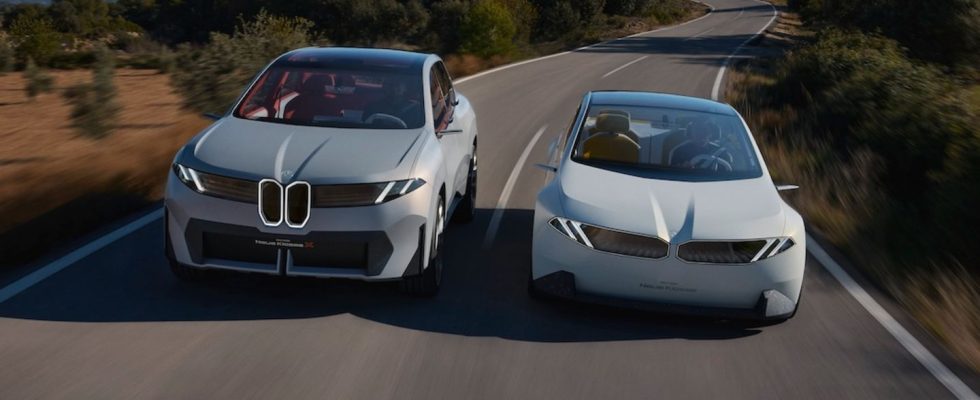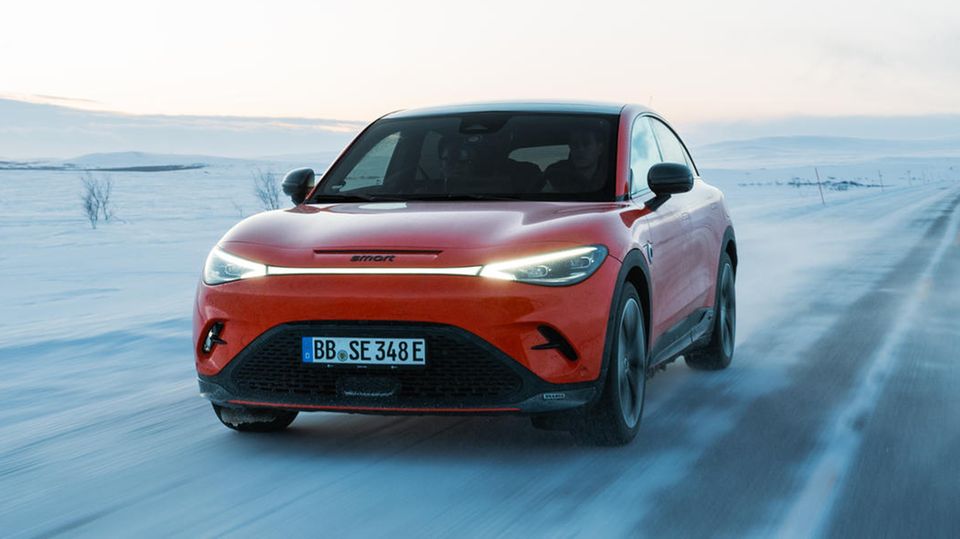Frank Weber is Head of Development at BMW and is responsible for the next generation of vehicles. As such, he is the father of a series of electric models that will come onto the market as a new class from 2025 – the most important BMW project of the last two decades.
Joaquim Oliveira
After an early investment in electric propulsion with the i3 changed in 2013 BMW its strategy and eleven years later is one of the brands that still does not have a modular platform for electric cars. It will come (the architecture of the New Class), but it is not here yet. Why so late?
Frank Weber: When we look at the automotive industry, we realize that we live in very special times. So much so that not only do we not know what will happen in the next three years… but we are not even sure what it will look like at the end of the year. Almost all customers who come to our dealers are unsure which type of drive is best for them. Even the so-called early adopters are wondering whether they will have the right conditions to buy a 100 percent electric car, and we are also seeing some customers take a step back, sell their electric cars and buy plug-in hybrids, because they recognized that the infrastructure is not yet ready and that the longer electric range of the latest PHEV opens up new possibilities. And the uncertainty of funding programs contributes to this dilemma, which complicates product planning for every automobile manufacturer. That’s why investing in drivetrain flexibility is so important for BMW.
Has BMW disappointed the market with this reversal of priorities?
Two years ago I heard and read comments that people were waiting for BMW to commit to electric cars with their own platforms sooner. But that is not the point. The point is that you first have to assess whether the conditions for this “all-in” strategy for electric cars are present. Is there enough green electricity? Are there enough sustainable raw materials? What about a charging infrastructure for everyone? And are there recycling systems for all materials? The answer to all of these questions is: “No”. Therefore, the strategy we adopted turned out to be the most correct and worked to our advantage. And that’s why dealers tell me when I visit them that consumer choice (between different types of propulsion) is fundamental. The customer decides on the model and then on the drive.
Will this change with the arrival of the new class?
Yes and no. Yes, because with the architecture of the new class we will start producing electric vehicles in large quantities. And no, because we will continue to sell petrol, diesel and plug-in hybrid vehicles. Our goal is to continue to offer the best engines in every category and that requires continued investment, apart from the fact that internal combustion engines will still exist in many regions of the world even after 2035. We don’t want our cars with electric motors to be the ones with modern drive technology and the combustion engines to be the old engines with outdated technology.
Does this mean that BMW will continue to invest in internal combustion engines, unlike other manufacturers who have already announced that they will no longer invest in this area?
In any case. We will continue to invest and develop petrol, diesel and plug-in hybrid engines. Especially because it’s not just about the fact that there are new, stricter limits for pollutant emissions in Europe. It is a global process.
Why did you show the new class concept sedan first and then the crossover when the latter comes to market first
We completed these two archetypes of almost all BMWs of the future at the same time, and in fact they will be launched virtually at the same time. We will start producing pre-series vehicles this year, and series production will begin in 2025, first in Hungary, then in Munich and then in the rest of the world. The decision to start with the crossover is strategic because today half of BMW’s global sales are X-vehicles. This means that there are regions where they account for up to 2/3 and these models are leaders in their segment. But both concepts are inspired by our slogan “the ultimate driving machine”, meaning our electric cars will also be the best driving cars on the road.
The concerns of the BMW M division
Does this have anything to do with the general vehicle tax calculators?
The new driving dynamics control unit is one of the most important elements, probably the most important. It is difficult to build such a complex control unit that contains all the DNA of BMW driving dynamics over the last three decades. Steering, 4×4, ABS, rear axle steering, brakes – we developed everything “in house” and integrated all algorithms into this control unit like no other brand can.
Can you confirm that the M electric cars will have an electric motor on each wheel?
Yes, the future electric M3 for example. And with acceleration and recuperation functions on each wheel, with a total output of almost a megawatt (note: more than 1300 hp), you can imagine that it will be something very special to achieve, but also to drive. Even I was surprised when I tested the prototypes. Our engineers in the M division were concerned about this transition to e-mobility because, for example, they feared losing very important elements that make up the authenticity of BMW M (the combustion engine and the transmission). However, they have now realized that with these very precise and powerful control devices it is possible to raise the dynamic competence of our vehicles to an even higher level than with combustion engines.
Are Tesla (which already produces two million electric cars a year) and the Chinese (who have gone from a threat to a reality) robbing you of sleep?
At BMW, sales of electric cars will grow by 75 percent by 2023, and we are the market leader in premium electric cars. In the case of Tesla and the Chinese, we see the prices of the electric cars they sell and we understand that these are not sustainable practices. Also because electric cars are still more expensive to produce and deny them the opportunity to be profitable. We have not entered into this price war and will not do so. If we look at the entire German market in January, we see that the i4 was the best-selling electric sedan, behind three SUVs, which shows that our strategy is correct. As for the brands that have radically reduced their prices, this will be reflected in their financial reports.
You mentioned the profits of electric cars. Will the models in the new class enable the same profit margins as those with combustion engines?
We want to be at the same level. We have achieved a 50 percent cost reduction in electric propulsion, i.e. motors, batteries and power electronics, which allows us to price more competitively, yes, but still more expensive than corresponding petrol/diesel derivatives. But we must take into account that the cost per kilometer of an electric car is much lower, and that is what made diesel successful in Europe for decades.
The price of electricity and gasoline controls customer interest
Does this mean that the price of the energy that makes the vehicle move is the main purchasing motive for Europeans?
Undoubtedly. The single factor that has the greatest influence on the increase or decrease in EV market share is the price of gasoline/diesel, not environmental concerns, not raw material costs, nor any other factor.
Given the current shift in customer values and offerings in the automotive market, who are your main competitors right now?
The customer does not compare companies, he compares the products directly. That means the i4 has to compete with a Tesla Model 3 and a petrol 3 has to be better than a Toyota hybrid and superior enough to justify the price increase for a premium product. This means that everything is becoming more complex for us in these new times.
Drive turnaround
1881 to today: The history of the electric car is longer than expected
Until recently, traditional car brands were considered such, but now you and others like you have also started producing software. Tesla was a kind of software company that also made cars. Do you have the feeling that after the launch of the new class models, the two areas in your company will be on the same level?
Yes I think so. And I can tell you that, other than Tesla, we are the only automaker in the world that has a fleet of six million vehicles that can be updated over-the-air. I’m not talking about updates to the superficial infotainment layers, which we are also updating, but rather updates to the vehicle’s driver assistance systems. And at BMW we have never postponed the planned start of production of a new model for reasons related to the software or the battery. But there are some of our competitors who cannot say the same.
BMW is keen to emphasize how important the circular economy is and that it will be the future. What is the key aspect that will make the difference in this challenge?
The battery question is fundamental. If we think about the 600 kilograms of a large battery, 80 to 90 percent are valuable materials, and of that amount, 95 percent can be recycled. If this problem is not solved technically, everything else will be left and will have a much lower impact on the entire vehicle production cycle, the value chain and the environment.


